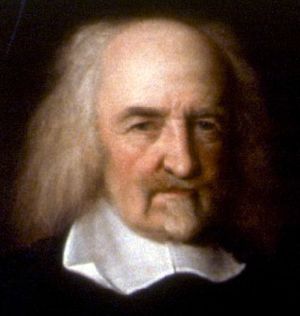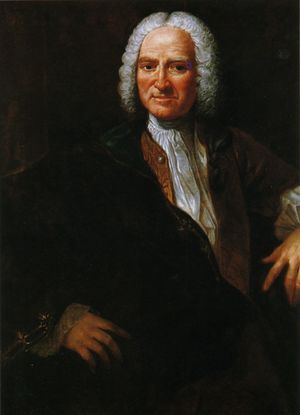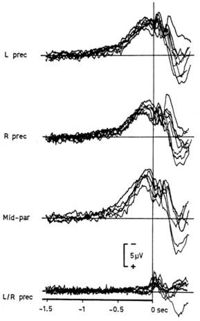حرية الإرادة

حرية الإرادة Free will اصطلاح يفترض أن معظم الناس لديهم حرية الاختيار عند صنع القرارات. ويبدو أن النظم الأخلاقية والقانونية التي تمنح أو تلوم، أو تكافئ، أو تعاقب تفترض أن للناس حرية الإرادة، فإن لم يكن للناس حرية الإرادة فمن غير المعقول أن يتحملوا مسؤولية قراراتهم، وأعمالهم، ويكون من الصعب تبرير مكافأة أو معاقبة الناس على أعمال لا يملكون تجنب ممارستها.


كانت فكرة حرية الإرادة محل تساؤل لأنها تتعارض مع الاعتقاد السائد في القدرية (الحتمية). وتعني القدرية أن كل حدث قد حددته فعلاً ظروف أو أسباب موجودة مُسبقًا. وطبقًا لهذا الرأي، فإن الحالة الراهنة للعالم تحدد كل شيء سيحدث في المستقبل، ومن ثم تكون القرارات والأعمال الإنسانية مثل جميع الأحداث قد حددتها أسبابٌ سابقة لها. يقول نقاد حرية الإرادة بأن خياراتنا ليست في الواقع حرة إذا ما كانت محددة من قبل أن نصنعها.


انظر أيضاً
|
|
المصادر
قراءات أخرى
- Bischof, Michael H. (2004). Kann ein Konzept der Willensfreiheit auf das Prinzip der alternativen Möglichkeiten verzichten? Harry G. Frankfurts Kritik am Prinzip der alternativen Möglichkeiten (PAP). In: Zeitschrift für philosophische Forschung (ZphF), Heft 4.
- Dennett, Daniel C. (2003). Freedom Evolves. New York: Viking Press ISBN 0-670-03186-0
- Epstein J.M. (1999). Agent Based Models and Generative Social Science. Complexity, IV (5).
- Gazzaniga, M. & Steven, M.S. (2004) Free Will in the 21st Century: A Discussion of Neuroscience and Law, in Garland, B. (ed.) Neuroscience and the Law: Brain, Mind and the Scales of Justice, New York: Dana Press, ISBN 1932594043, pp51–70.
- Goodenough, O.R. (2004) Responsibility and punishment, Philosophical Transactions of the Royal Society: Biological Sciences (Special Issue: Law and the Brain), 359, 1805–1809.
- Hofstadter, Douglas. (2007) I Am A Strange Loop. Basic Books. ISBN 978-0465030781
- Kane, Robert (1998). The Significance of Free Will. New York: Oxford University Press ISBN 0-19-512656-4
- Lawhead, William F. (2005). The Philosophical Journey: An Interactive Approach. McGraw-Hill Humanities/Social Sciences/Languages ISBN 0-07-296355-7.
- Libet, Benjamin; Anthony Freeman; and Keith Sutherland, eds. (1999). The Volitional Brain: Towards a Neuroscience of Free Will. Exeter, UK: Imprint Academic. Collected essays by scientists and philosophers.
- Morris, Tom Philosophy for Dummies. IDG Books ISBN 0-7645-5153-1.
- Muhm, Myriam (2004). Abolito il libero arbitrio - Colloquio con Wolf Singer. L'Espresso 19.08.2004 http://www.larchivio.org/xoom/myriam-singer.htm
- Nowak A., Vallacher R.R., Tesser A., Borkowski W. (2000). Society of Self: The emergence of collective properties in self-structure. Psychological Review. 107
- Schopenhauer, Arthur (1839). On the Freedom of the Will., Oxford: Basil Blackwell ISBN 0-631-14552-4.
- Van Inwagen, Peter (1986). An Essay on Free Will. New York: Oxford University Press ISBN 0-19-824924-1.
- Velmans, Max (2003) How Could Conscious Experiences Affect Brains? Exeter: Imprint Academic ISBN 0907845-39-8.
- Wegner, D. (2002). The Illusion of Conscious Will. Cambridge: Bradford Books
- Williams, Clifford (1980). Free Will and Determinism: A Dialogue. Indianapolis: Hackett Publishing Co.
وصلات خارجية
- Free Will and Determinism at the Open Directory Project
- Stanford Encyclopedia of Philosophy entries:
- "Free Will" by Galen Strawson in Routledge Encyclopedia of Philosophy
- "Free Will" in Catholic Encyclopedia
- The Determinism and Freedom Philosophy Website edited by Ted Honderich
- History of the Free Will Problem by Bob Doyle
- MSNBC article on recent Free will research